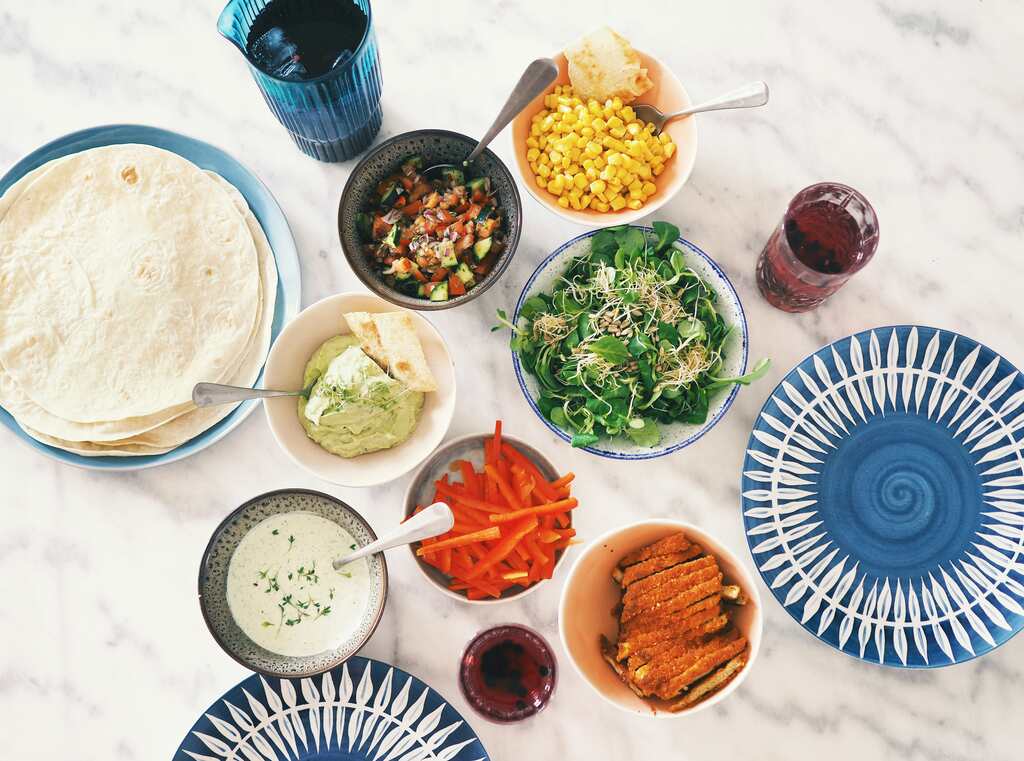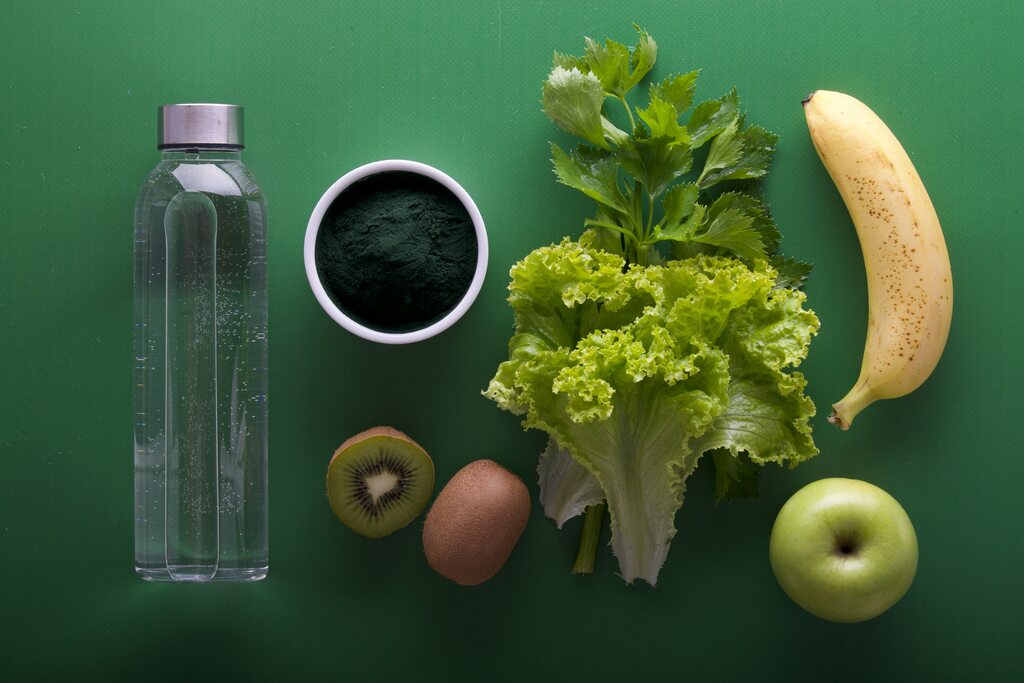Eating well should be a priority for people in their routine considering their health needs — but everyone knows that the topic of how to have a healthy diet still does not receive due importance.
A recent study published by Folha de São Paulo reveals that obesity is expected to reach around 30% of the Brazilian population by 2030, worrying data that shows us a lot about the country's food culture and how it impacts the lives of Brazilians.
A balanced diet is the basis for a healthy and fulfilling life, and it is by choosing the right foods and adopting appropriate eating habits that we can prevent a series of complications.
We are talking about chronic diseases, strengthening the immune system, having more stamina and energy, and even improving our mood and well-being.
Often, the tiredness we feel, the difficulty sleeping and even some discomfort or another with the appearance of our skin are closely related to the way we eat.
If you are thinking about adopting a better lifestyle and want to know how to have a healthy diet, know that iFood is your partner in this — with tips and exclusive coupons so you can order healthy food for delivery!
In the article below, you can find more details about what healthy eating is, its importance, and how to have a good diet with simple tips to incorporate into your routine.
Take some time to write down our tips and enjoy reading!
Read too:
- 9 initiatives that increase access to healthy food
- Is it good to eat? Learn how to identify signs in 7 foods
How important is it to have a healthy diet?
Having a balanced diet has nothing to do with diets for a stereotypical “ideal body”: the objective is to adopt a healthy lifestyle that guarantees health, well-being and full aging.
Healthy, balanced foods help us have all the essential nutrients that the body needs to function properly, such as minerals, proteins, carbohydrates, vitamins and fats — we're talking about the healthy ones here, lol.
The truth is that the rush of everyday life ends up making it very tempting to exchange homemade, well-prepared food for ultra-processed items on the market: including, newspaper O Globo points out that these foods kill 57 thousand people per year in Brazil.
A Virtual Health Library, from the Ministry of Health, highlights that our rice and beans are a complete combination of proteins and are very good for your health: it is important to include this match at least 5 times a week!
Talking about healthy eating is essential, and we begin this discussion by bringing here the main points that corroborate the importance of a balanced diet:
Heart health
Healthy eating plays a crucial role in maintaining heart health in several ways: for example, a diet rich in fiber, such as that found in fruits, vegetables, legumes, and whole grains, helps reduce LDL cholesterol levels (the “ bad” cholesterol) in the blood.
Furthermore, foods rich in potassium, such as bananas, avocados, beans and green leafy vegetables, help control blood pressure, reducing the risk of hypertension, strokes and other cardiovascular diseases.
Strengthening the immune system
Responsible for defending the body against viruses, bacteria and other pathogens, our immune system needs to be strong to perform its functions — and diet has a big impact on this.
Vitamin C, found in citrus fruits, strawberries and vegetables such as peppers and broccoli, is known for its ability to strengthen the immune system and fight infections.
Zinc, present in foods such as meat, seafood, nuts and seeds, is also essential for immune function.
Proteins are also important for the production of antibodies and other components of the immune system; here, lean sources such as fish, poultry and legumes should be included.
Energy and disposition
You know that week that seems busy and we don't have the will to do the tasks? Much about this lack of energy is linked to our diet.
Foods rich in complex carbohydrates, such as whole grains, vegetables and fruits, provide sustained energy, keeping blood glucose levels stable and preventing sudden spikes and drops in energy.
Furthermore, foods rich in tryptophan, such as bananas, oats and fish, are precursors of serotonin, a neurotransmitter related to mood and well-being; a balanced diet can help regulate mood and reduce stress and anxiety!
Ingesting nutrients such as iron and vitamin B12, found in lean meats, dark green leafy vegetables and legumes, helps prevent anemia and reduces fatigue and feelings of tiredness.
Chronic disease prevention
A healthy diet also helps maintain a healthy body weight, which is essential for preventing diseases such as obesity, type 2 diabetes, cardiovascular disease, high blood pressure and certain types of cancer.
Foods rich in antioxidants, such as fruits, vegetables, legumes and teas, can help neutralize free radicals and reduce the risk of developing certain types of cancer, such as colon, breast and prostate cancer.
Furthermore, a balanced diet with calcium, vitamin D, magnesium and other nutrients important for bone health helps prevent diseases such as osteoporosis and osteopenia, which affect bone density and strength.
How to have a healthy diet?

Having a healthy diet involves making conscious and balanced choices in relation to the food we consume — and a good portion of the Brazilian population has already given more importance to this topic.
Firstly, with food packaging containing warnings about excess nutrients, many people began to pay more attention to what is part of their meals, avoiding saturated fats and sodium.
Furthermore, the number of initiatives aimed at healthy eating is increasing: the NGO Gastromotiva, created by David Hertz, began with actions to combat food waste and hunger.
“By 2024, we will prepare Gastromotiva to help change the lives of 10 million people,” said Hertz in interview with iFood News.
Supporting this chain of good that encourages balanced and healthy eating, we have separated some good practices to help you have a balanced diet:
1. Include a variety of foods
Consume different types of foods from all food groups to ensure you intake all essential nutrients!
We're talking fruits, vegetables, legumes, whole grains, lean proteins and healthy fats.
2. Eat more fruits and vegetables

Since we mentioned them, it is worth highlighting that it is important to try to include at least 5 servings of fruits and vegetables per day.
Vary the colors of these foods to get ample sources of vitamins, minerals and antioxidants.
3. Choose carbohydrates consciously
Opt for whole grains instead of refined ones!
This includes brown rice, quinoa, oats, whole-grain bread and whole-grain pasta, which are rich in fiber and provide sustained energy.
4. Reduce your consumption of added sugars
Limit your consumption of sugary foods and drinks, such as soft drinks, sweets, cakes and biscuits.
Here, opt for healthier items like fresh fruit, unsweetened plain yogurt and low-sugar snacks.
5. Consume healthy fats
Opt for healthy fats, such as those found in avocados, nuts, seeds, olive oil, and omega-3-rich fatty fish (salmon, sardines), rather than saturated and trans fats.
6. Increase your fiber intake
In addition to whole grains, include sources of fiber in your diet, such as legumes (beans, lentils, chickpeas), vegetables, fruits and seeds.
7. Choose lean proteins
Include lean sources of protein in your diet, such as fish, skinless chicken, eggs, tofu, tempeh and legumes.
Avoid excessively processed and fatty meats.
8. Plan your meals
Plan your meals weekly to ensure a balanced diet and avoid impulsive and unhealthy food choices.
iFood helps you with this: go to the app and use our Shopping list to plan the fair with lots of variety and savings!
9. Practice balance and moderation
Don't deprive yourself of foods you like, but consume them in moderation and balance: the key is variety and moderation.
Which foods to prioritize to have a healthy diet?
To have a good diet, with good health and variety, it is essential to consume the right foods.
We have separated a table here to help you prioritize what brings the most benefits in your diet:
| Why? | Examples | |
| Fruits, vegetables and legumes | At least 5 servings per day; the more variety, the more nutrients you eat | Orange, lemon, banana, arugula, lettuce, carrot, yam, tomato, spinach, broccoli |
| Whole grains | They are rich in fiber, which helps regulate the intestine, increase satiety and control cholesterol. | Wholemeal bread, brown rice, quinoa and oats |
| Lean proteins | They are important for muscle growth, repair and development | Tilapia, tuna, skinless chicken, lean beef cuts such as ducklings, eggs, lentils, chickpeas |
| Dairy | They are good sources of calcium and vitamin D, important for the health of bones and teeth | Skimmed or semi-skimmed milk, natural yogurt, cottage cheese and light cheeses |
| Good fats | They are important for heart and brain health | Olive oil, avocado, nuts and salmon |
It is worth highlighting that consulting a nutritionist is the best way to ensure that your diet meets your daily needs in terms of metabolism and calories.
Furthermore, in addition to a balanced diet, it is worth remembering that regular physical exercise and good water intake also contribute to a healthier life.
When buying items for a colorful refrigerator full of healthy items, make a delivery market! iFood brings together the best markets in your region with good prices.
A balanced diet is the greatest ally in a healthy life
Knowing how to have a healthy diet is an investment in your health and quality of life in the long term.
By following simple tips and making conscious choices regarding the foods you consume, you can reap the countless benefits of a balanced diet.
Remember that small changes can make a big difference to your overall health and well-being.
Want more tips like these? Continue here on iFood News and stay tuned for the best content about healthy eating, innovation, technology and much more.


